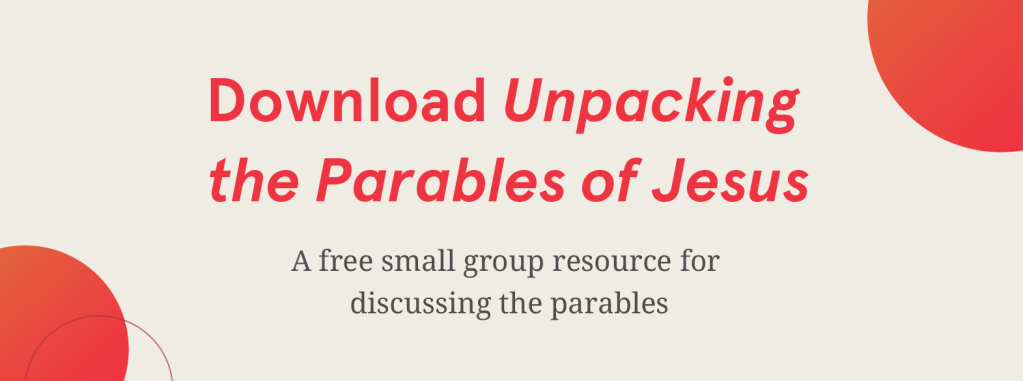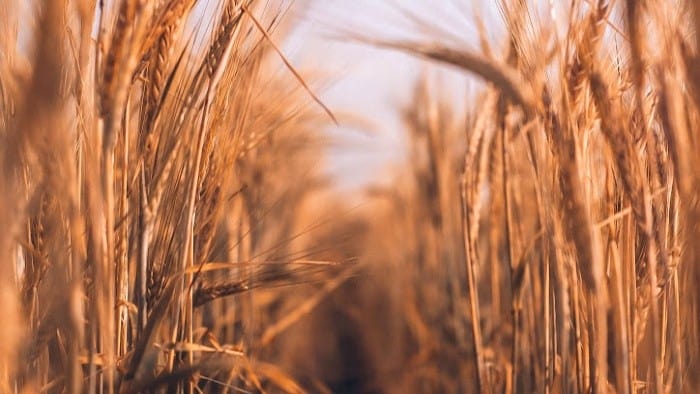
Leading a small group or Bible study?
Download a free copy of Unpacking the Parables of Jesus. This guide is packed with the necessary tools to lead your group through an insightful discussion of Jesus’ parables. You’ll find critical insights and thoughtful questions to help guide your group through Jesus’ essential teachings. You’ll also receive our bi-weekly JFP News, packed with films and resources to help you share Jesus’ story with the world.
First century Jews lived in an agrarian culture, so it’s no wonder that a lot of Jesus’s teaching used the example of crops a
nd farmers. In the Parable of the Sower, Jesus talks about how people respond to the gospel. In the Parable of the Tenants, He used the story of a vineyard to address the ways Israel had consistently worked against God.
In Matthew 13, Jesus tells another farm-related story:
Jesus told them another parable: “The kingdom of heaven is like a man who sowed good seed in his field. But while everyone was sleeping, his enemy came and sowed weeds among the wheat, and went away. When the wheat sprouted and formed heads, then the weeds also appeared.
The owner’s servants came to him and said, “Sir, didn’t you sow good seed in your field? Where then did the weeds come from?”
“An enemy did this,” he replied.
The servants asked him, “Do you want us to go and pull them up?”
“No,” he answered, “because while you are pulling the weeds, you may uproot the wheat with them. Let both grow together until the harvest. At that time I will tell the harvesters: First collect the weeds and tie them in bundles to be burned; then gather the wheat and bring it into my barn” (Matthew 13:24-30).
Horticultural sabotage
The specifics of this story would have made a lot more sense to Jesus’s original audience. When one farmer wanted to sabotage another, it wasn’t unheard of for them to sow bearded darnel into their wheat.
Bearded darnel is a noxious weed that mimics many of the characteristics of wheat-for a while. Before they mature, the two plants are almost identical, but as they grow, the differences become apparent in the fruit. Unfortunately, darnel is poisonous and in big enough doses will kill a person. So it’s not something a farmer wants mixed up in their harvest.
The concerned servants want to remove the darnel, but the farmer is afraid they’ll mistakenly throw out perfectly good wheat. He instructs them to leave the separation to the harvesters whose job it is to remove the darnel.
Interpreting the parable
After Jesus and the disciples leave the crowds, they ask Him to interpret the parable for them:
He answered, “The one who sowed the good seed is the Son of Man. The field is the world, and the good seed stands for the people of the kingdom. The weeds are the people of the evil one, and the enemy who sows them is the devil. The harvest is the end of the age, and the harvesters are angels.
“As the weeds are pulled up and burned in the fire, so it will be at the end of the age. The Son of Man will send out his angels, and they will weed out of his kingdom everything that causes sin and all who do evil. They will throw them into the blazing furnace, where there will be weeping and gnashing of teeth. Then the righteous will shine like the sun in the kingdom of their Father. Whoever has ears, let them hear” (Matthew 13:37-43).
When Jesus first introduces the parable, He says, “The kingdom of heaven is like….”
To really grasp this parable, it’s helpful to understand that Jesus is describing the kingdom of God. Jesus is sowing gospel seeds throughout the world and raising up Christians. But at the same time, the enemy is in the world spreading counterfeit seed. In its immature state, it isn’t always simple to discern the differences between those that belong to the kingdom and those who do not.
The servants want to help the farmer by uprooting the imposters, but they lack the sensitivity of the angelic harvesters. It’s not the job of the servants to make judgments about what is and isn’t actual wheat. Their job is to serve the farmer as He spreads the legitimate seed.
It seems that the main point of the parable is that unlike the disciples’ expectation, the kingdom of God wouldn’t be a restored Israel. It would be a borderless kingdom where the citizens might not immediately appear much different than those in the kingdom of man. Any attempt to separate the two could do damage to God’s kingdom.
The servants should assist Jesus in planting seeds and ensuring that they grow to maturity. At the end of the age, it’s the job of the harvester to judge who is or isn’t a member of God’s kingdom.
If you’re interested in learning more about Jesus’s teaching, check out All the Parables of Jesus for a bird’s-eye view of His story-like lessons.
